A photo series by Oliver Ressler
2011
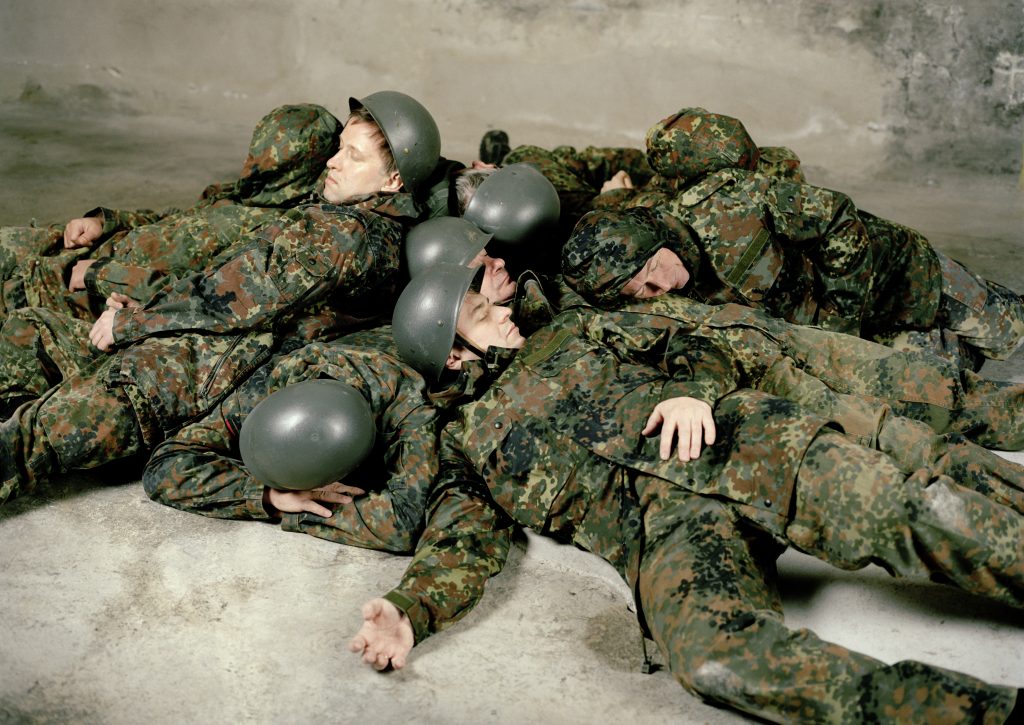
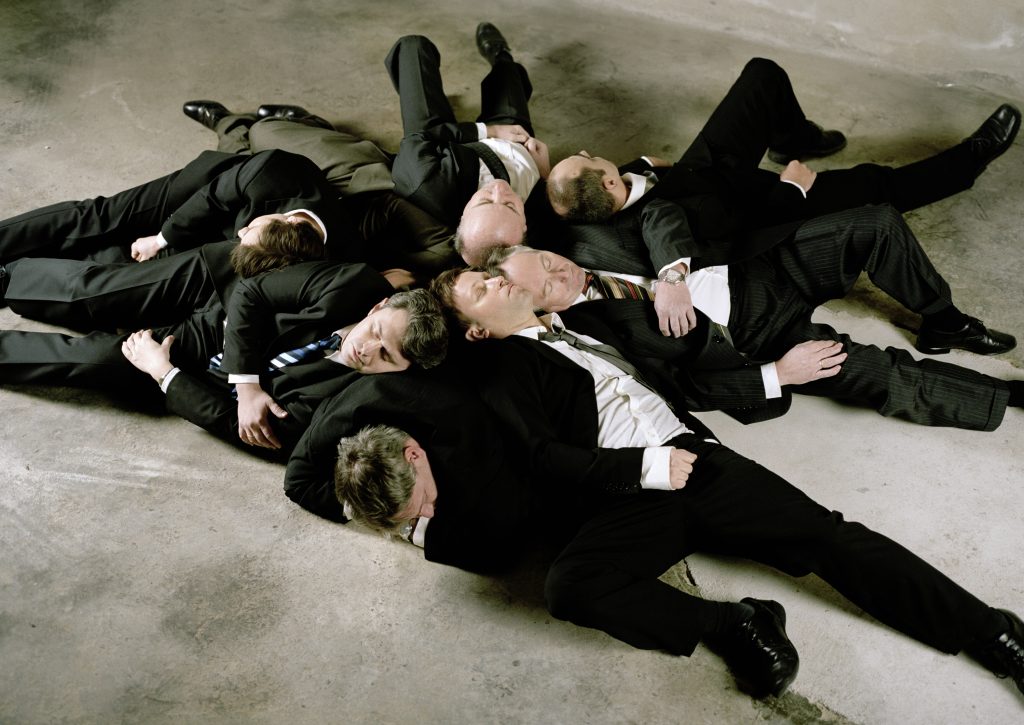
“We have a situation here” is a standard line in disaster films when an actor faces a challenging situation. The three photographs show people lying on top of each other and recognizably dressed as managers, police and soldiers.
The piles of managers, police officers and soldiers give the impression that these central players in the exercise of power are no longer necessary. Their game is over.
Managers of large corporations have for decades used their influence in the global economy to benefit their companies at the expense of environmental, social and labor standards and, as a result, entire regions have sunk into poverty. “Criminality is no longer something that takes place at the margin of legal economic activity, but it is the basic activity of the post-industrial economic system, within which the traditional bourgeoisie have lost their cultural and ethical moorings,” writes Italian philosopher Franco Berardi Bifo (1). At least since the 2008 crisis – and because of the way the elites have managed it – people in the center of capitalism have overwhelmingly lost confidence in the social system and its representatives. According to a Polis/Sinus survey for the SPD-affiliated Friedrich Ebert Foundation, one in three German citizens doubts the effectiveness of representative democracy. (2)
Nevertheless, the primary function of police remains maintaining public security and order; this means nothing else than to protect existing power relations and destroy any effort for transformation. “If domination is always a process of armed robbery, the peculiarity of capitalism is that the person with the arms stands apart from the person doing the robbery, merely supervising that the robbery conforms with the law,” argues John Holloway. (3)
The military has the function of securing the global relations of power, which ranges from implementing the politics of exclusion up to securing the international supply of raw materials, often acting directly against the interests of the majority of the people living in resource-rich countries.
In the three photographs “We Have a Situation Here”, managers, police and military lie among each other. The existing order is faltering, ideas run free:
Is a society imaginable, even desirable, without managers, police or military?
Can the position of the manager be reduced again to the simple management of a firm, without a connection to particular power over other people?
Is it possible to imagine a restart of the economy and its subordination to the interests of the majority of the population?
Would it work to establish a new security system employed directly by the people and democratically controlled?
Where can the personnel necessary for social transformation be found?
Notes:
(1) Franco Berardi Bifo, Arbeit Wissen Prekarität, Kulturrisse 02/2005
(2) Florian Rötzer, Demokratie überzeugt nicht mehr, Telepolis, 30.06.2008
(3) John Holloway, Die Welt verändern ohne die Macht zu übernehmen (Change the World Without Taking Power), Münster: Westfälisches Dampfboot, 2004, p. 46
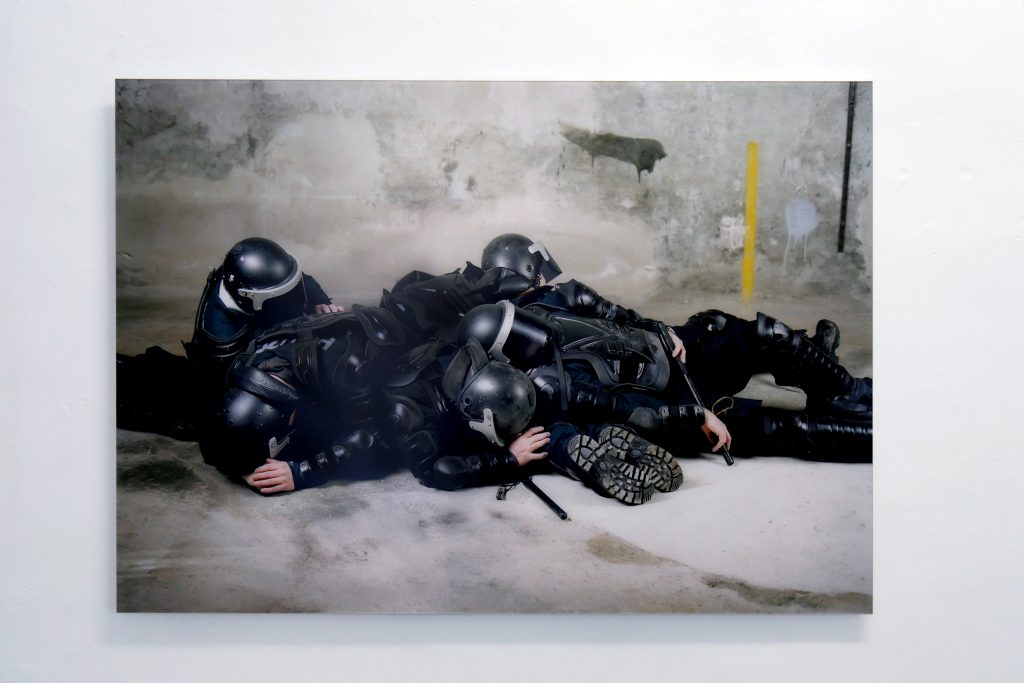
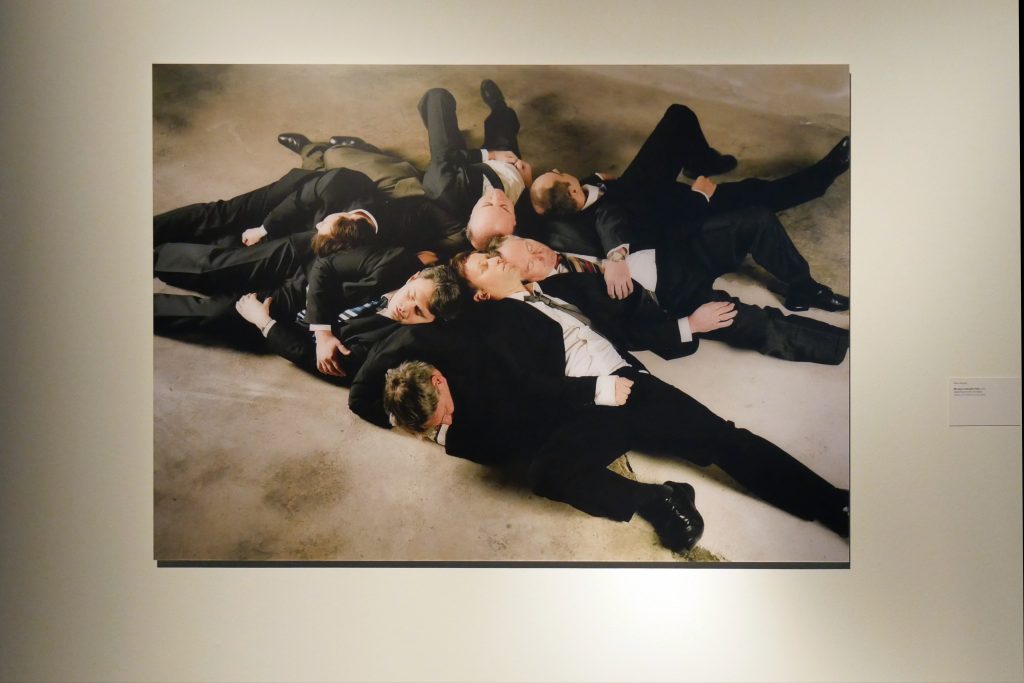
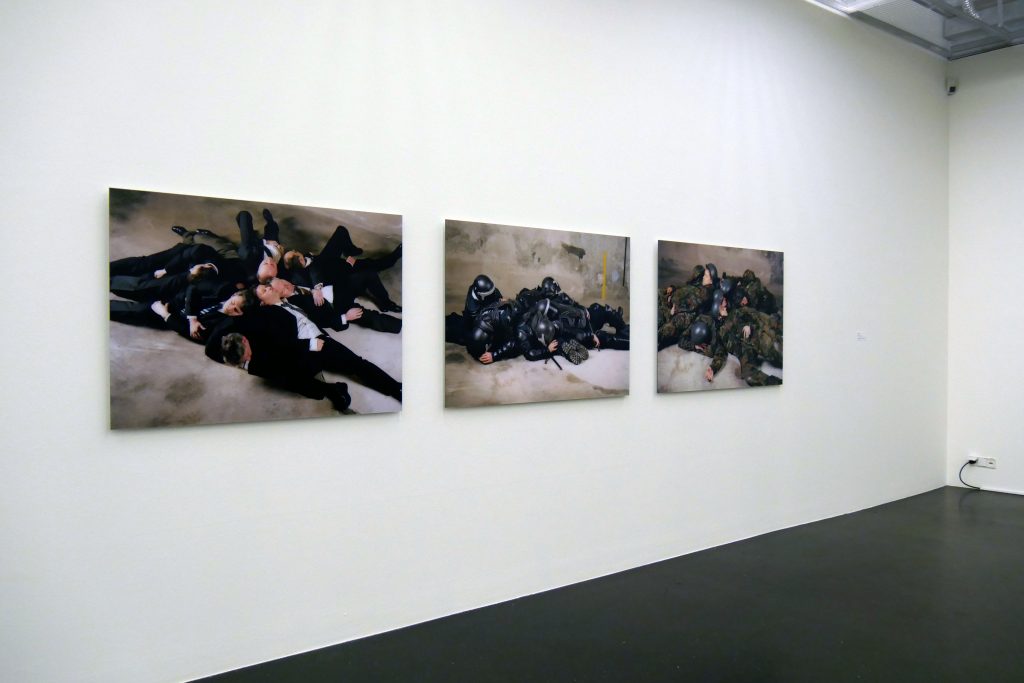
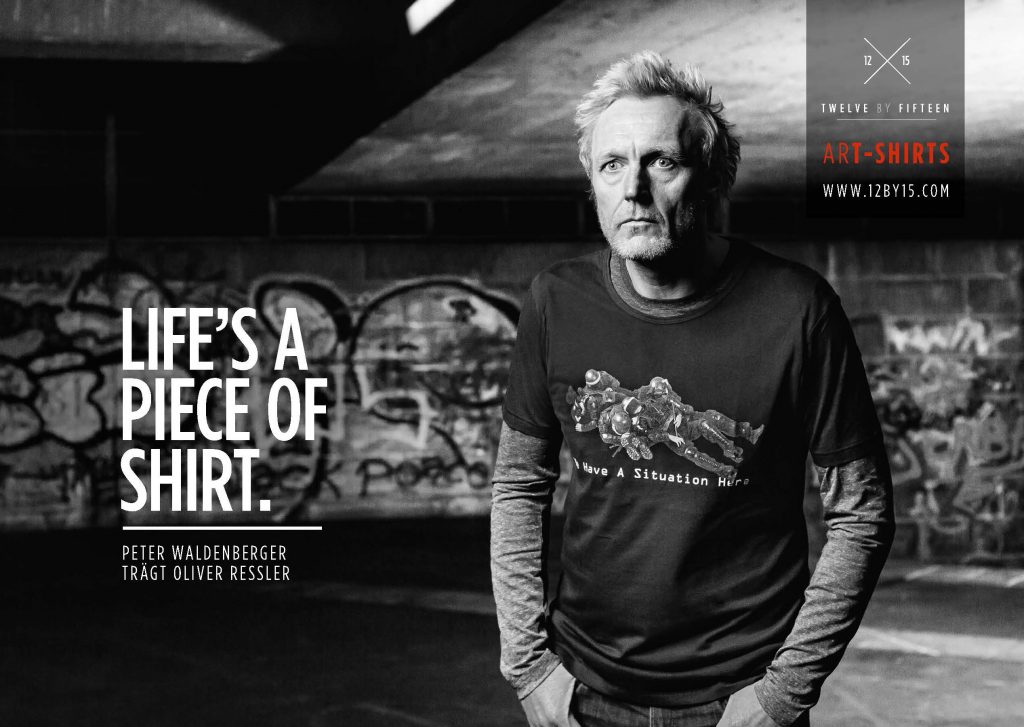
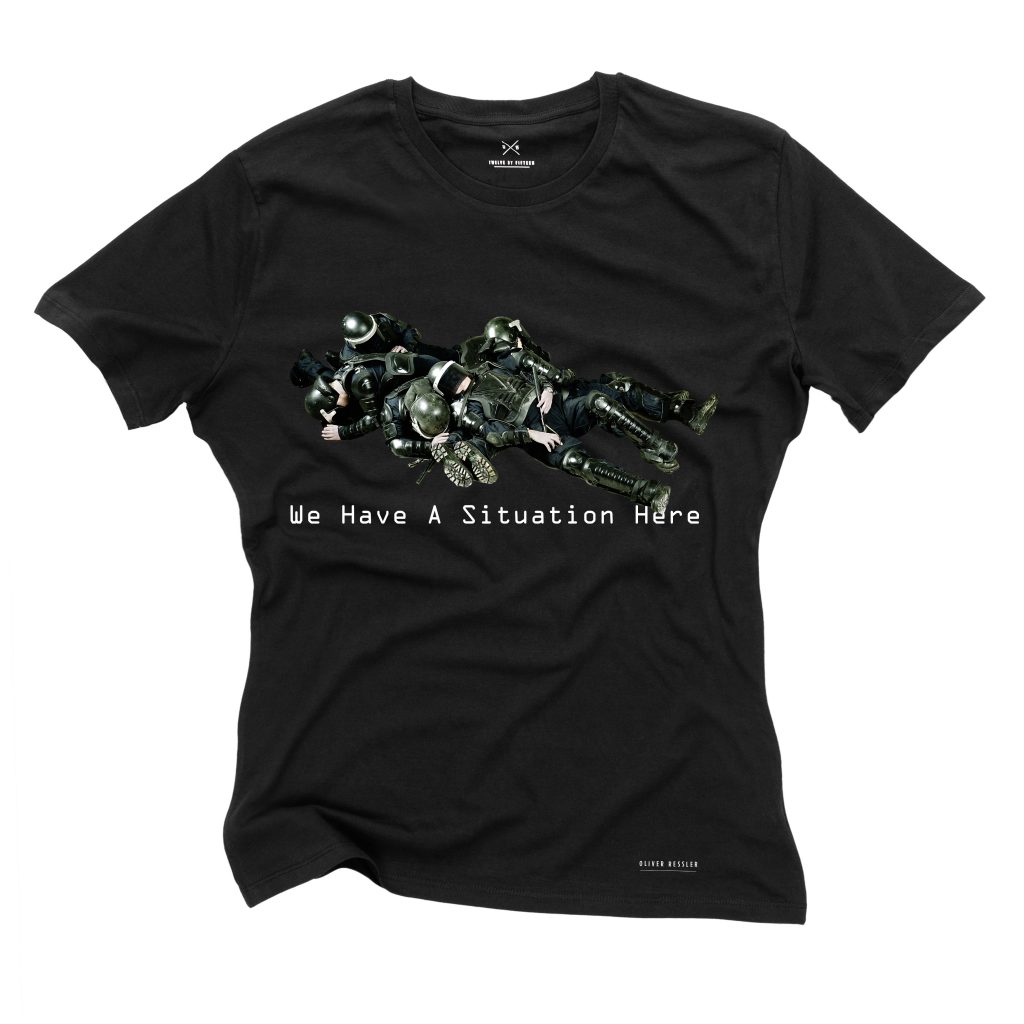
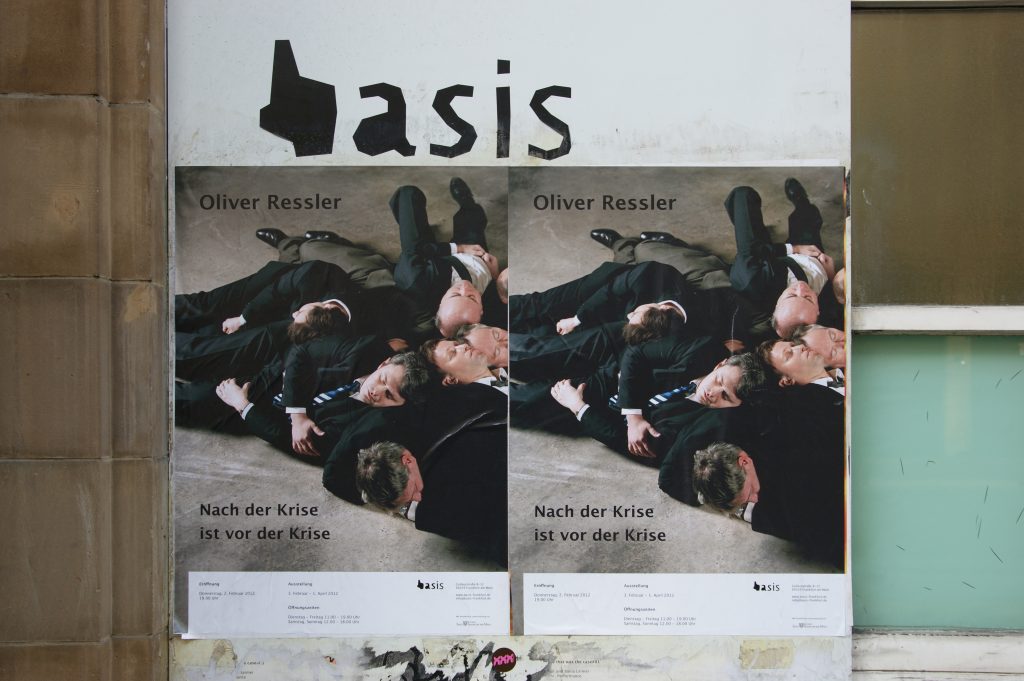
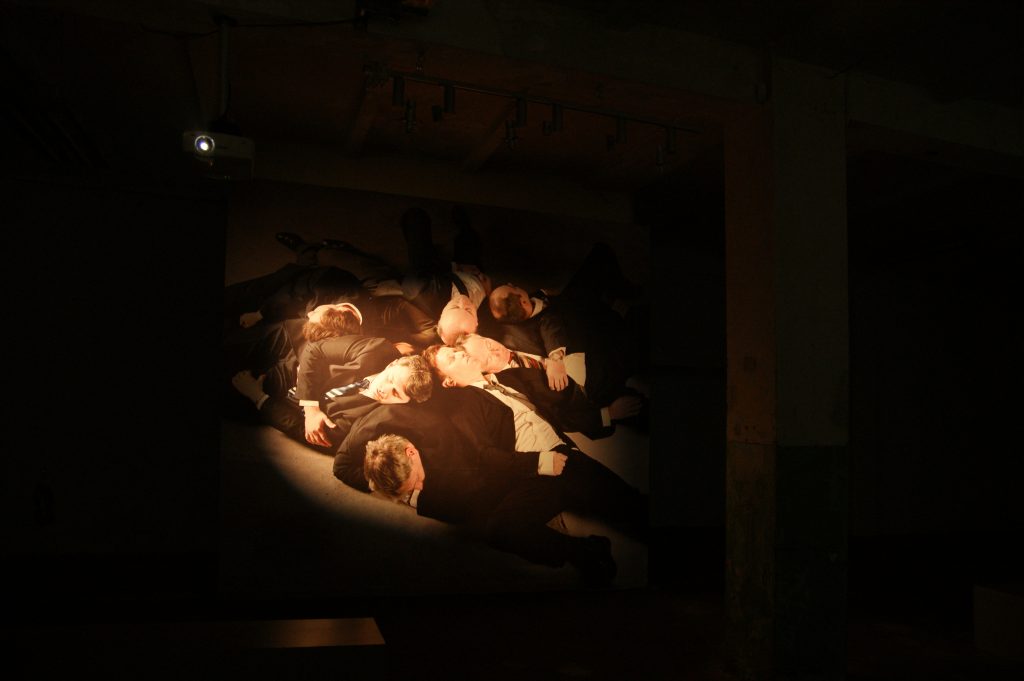
Photographer: Anja Manfredi
Support: Institut für Kunst im öffentlichen Raum Steiermark; Kunstraum Bernsteiner, Vienna
